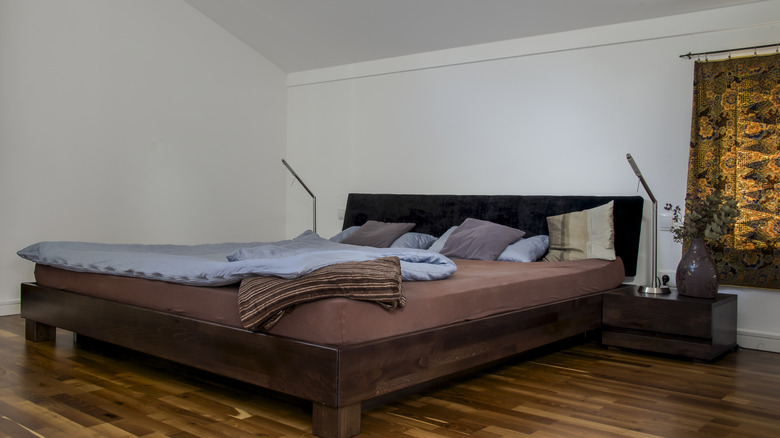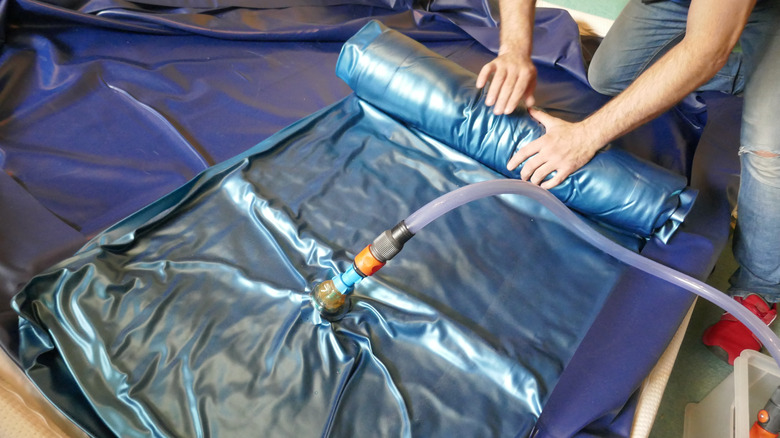Here's Why People Stopped Buying Waterbeds
If you were brought up in the '80s, then you must remember the popularity of waterbeds. If your parents had one, then you may even have snuck into their bedroom to enjoy the feeling of sleeping on water — and you weren't alone. Waterbeds were one of the most popular types of beds during this era, along with all matching furniture. According to The New York Times, the Los Angeles research firm Facts Consolidated noted that waterbeds dominated the $2 billion bed industry in 1984. Per Spy, CEO Bill Fish of the Sleep Foundation, agreed, saying that these beds "were all the rage in the late 1970s, peaking in the mid-1980s, where at one point 22% of all bedding purchases were waterbeds."
Additionally, waterbeds were marketed as sexy, per Mental Floss. In fact, one 1970s ad read, "Two things are better on a waterbed. One of them is sleeping." Another advertisement solidified the trend by saying, "She'll admire you for your car, she'll respect you for your position, but she'll love you for your waterbed" (via Time).
But behind that popularity, some pretty unsatisfactory things came with owning a waterbed. Read on to see the real reason waterbeds disappeared — and find out if they can make a comeback.
This is the reason why waterbeds lost their luster
Once we get past that feeling of sleeping on water or reminiscing about how warm a waterbed felt during a cold snap, we can see waterbeds for what they were, point blank: a tremendous amount of work. "A waterbed is extremely heavy, and moving it even a bit would require the entire bed to be drained. The bed frames are also extremely heavy due to the support needed for the actual bed," noted Bill Fish to Spy. He also explained in an interview with Realtor.com that, "it got to the point where many landlords wouldn't even allow a waterbed inside of their buildings." After all, a filled waterbed in the past was around a whopping 1,600 pounds. Other problems cited with owning one of these beds were leaks and, according to SF Gate, mold and mildew issues on the interior and exterior of the mattress. Yuck!
This doesn't mean that waterbeds can never make a comeback; however, let's hope that some of these less-than-ideal problems can be fixed. "Most of the customers buying waterbeds today are people who have already owned a waterbed from when they were popular, said Brooklyn DeJesus, co-owner of American Sleep Center in Lancaster, PA, to Realtor.com. "So those people may not have too much of an impact on future mattress buyers." He added that if waterbeds are to make a comeback, people would have to perceive them as "cool" once again.

